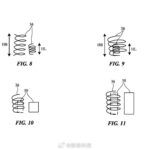As artificial intelligence (AI) increasingly infiltrates the creative industries, significant legal and ethical questions concerning copyright and authorship are surfacing. This explainer delves into the current state of affairs regarding AI-generated content, ownership rights, and the ongoing legal battles shaping the future of intellectual property.
AI and Copyright Laws: A Global Overview
The legal landscape around AI-generated content varies considerably across the globe. In the European Union, current legislation requires a human to make a significant contribution to a creation for it to be copyrightable, a standard echoed in many jurisdictions. The UK extends this notion to potentially include AI outputs if a human has made the “arrangements necessary for the creation of the work” under certain conditions.
In contrast, the United States has seen numerous lawsuits addressing whether AI can legally be considered an author or if only human creators can claim copyright. Recent cases have reinforced the principle that copyright demands human creativity, denying AI any form of authorship status under federal copyright law.
High-Profile Legal Disputes
Prominent cases have highlighted the tensions in this field. Artists have sued major AI companies, alleging that these firms have used their copyrighted works without permission to train algorithms. These lawsuits raise crucial questions about the nature of authorship and the extent to which AI can create “original” works that might infringe on existing copyrights.
The Role of Public and Corporate Policies
Responses to these challenges include calls for more stringent regulations and clearer policies governing the use of copyrighted material in AI training processes. Major corporations have already begun to adapt, with some tightening their content usage policies to prevent AI from scraping their sites for training data without proper licensing.
The Path Forward: Regulation and Innovation
As the debate continues, it’s clear that new frameworks and guidelines are necessary to balance innovation with the rights of creators. This might include revisions to copyright laws to better address the realities of AI in creative processes and more robust protections for traditional artists in the digital age .
The intersection of AI and copyright law is evolving rapidly, necessitating ongoing dialogue among policymakers, legal experts, creators, and technology developers. As AI capabilities advance, the need for an adaptive legal framework that can encompass the complexities of AI-generated content becomes ever more critical. The outcome of current discussions and legal battles will significantly shape the cultural and legal landscape for years to come.






























